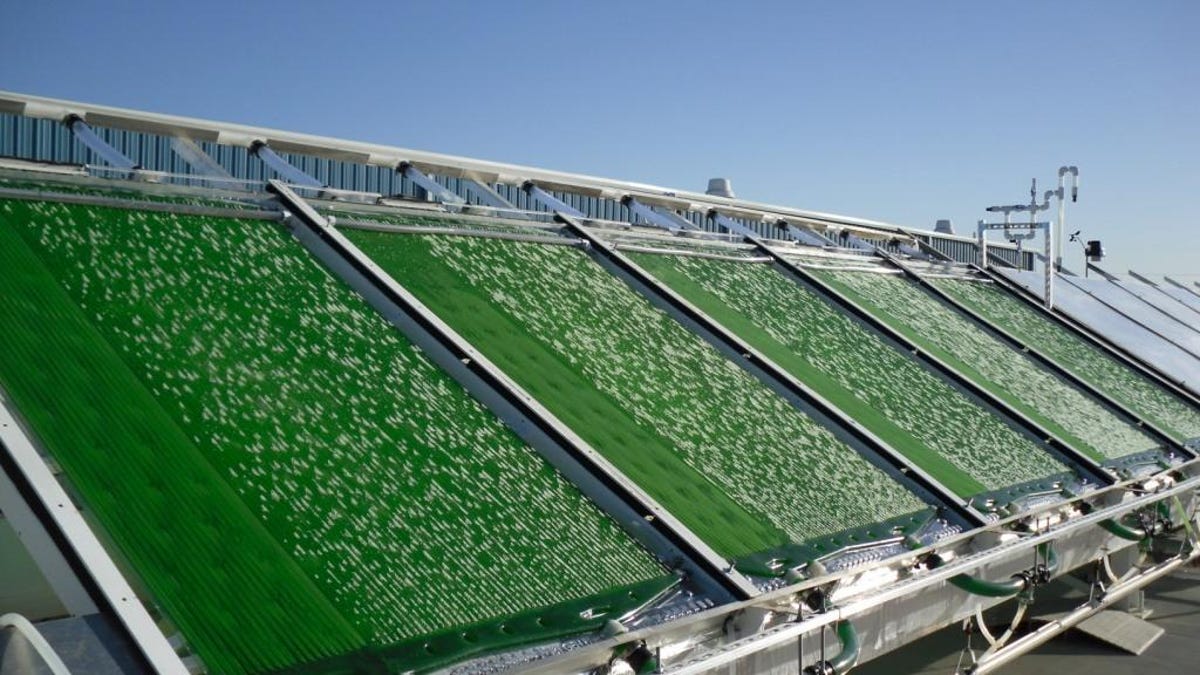Scaling up: Joule funded for test-tube biofuel
Startup Joule lands $70 million in private equity to build larger-scale plants that make diesel fuel directly from sunlight, carbon dioxide, and nutrients in solar panel-like bioreactors.

Startup Joule has secured the money to take its potentially breakthrough biofuel technology to a larger scale.
The company today announced that undisclosed private and institutional investors led a $70 million funding to build a larger demonstration plant. The announcement was made at the Technology Leaders in Future Energy conference in Abu Dhabi. Founding investor Flagship Ventures also joined the round.
Founded in 2007, Joule took a clean-sheet approach to making biofuels which now are primarily made from corn or sugar cane. Its process uses a genetically engineered version of cyanobacteria to produce diesel or ethanol using only sunlight, water, carbon dioxide, and nutrients.
The fuel-making microbes grow in a solution in specially designed solar panel-like bioreactors. Carbon dioxide, which can come from a polluting source such as a power plant, is piped into the collectors and as microbes grow, the fuel they create is separated and collected.
Dozens of biofuel companies have tried but not succeeded in making cellulosic ethanol from wood or other non-food sources at commercial scale. Having raised $110 million in funding to date and having met its technical goals, Joule is positioned to test its process at a larger scale.
Today's funding will allow it to expand and operate a demonstration plant in Hobbs, N.M., starting this summer. The site has the potential to expand to 1,000 acres for commercial production. "Joule has now successfully moved beyond the research phase to prove the industrial viability of its approach, with a clear path to global implementation," Joule founder and CEO of Flagship Ventures Noubar Afeyan said in a statement.

